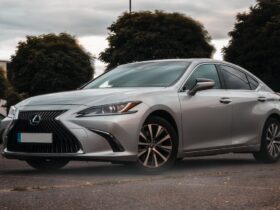Buying a used car can be a smart and budget-friendly choice. However, it’s important to ask the right questions to ensure you’re getting a reliable vehicle. Here are the top questions to ask when shopping for a used car to help you make an informed decision.
What is the Vehicle’s History?
Understanding the car’s history is crucial. Ask for a vehicle history report, which includes information on past ownership, accidents, repairs, and whether the car has a clean title. This report can help you avoid cars that have been in major accidents or have serious issues.
Has the Car Been in Any Accidents?
Directly ask the seller if the car has been in any accidents. Minor fender-benders might not be a big deal, but significant accidents can cause lasting damage. Look for signs of poor repairs or mismatched paint, which could indicate past accidents.
Can I See the Maintenance Records?
A well-maintained car is likely to be more reliable. Ask for maintenance records to see if the car has had regular oil changes, tire rotations, and other essential services. A car with a good maintenance history is less likely to have hidden problems.
Why Are You Selling the Car?
Understanding the reason for the sale can give you insights into the car’s condition. If the owner is selling because they’re upgrading, that’s usually a good sign. However, if they’re selling due to recurring issues, you might want to be cautious.
Can I Take It for a Test Drive?
Never buy a used car without taking it for a test drive. Pay attention to how the car handles, brakes, and accelerates. Listen for any unusual noises, and check how comfortable you feel driving it. A test drive can reveal many potential issues that aren’t visible from a simple inspection.
Can I Have the Car Inspected by a Mechanic?
Even if the car seems perfect, it’s wise to have a professional mechanic inspect it. They can identify any hidden problems that might not be obvious to an untrained eye. If the seller refuses, it could be a red flag.
What is the Mileage?
The mileage of a car gives you an idea of how much wear and tear it has endured. Lower mileage generally means less wear, but also consider the car’s age and how it has been used. A well-maintained car with higher mileage can be a better choice than a poorly maintained car with lower mileage.
Are There Any Warranties or Guarantees?
Some used cars come with warranties or guarantees, offering you protection if something goes wrong after the purchase. Ask if any warranty is still in effect or if the seller offers a short-term guarantee.
What is the Asking Price?
Understanding the market value of the car can help you negotiate a fair price. Research similar models and their prices to ensure you’re getting a good deal. Don’t be afraid to negotiate if the asking price seems too high.





































